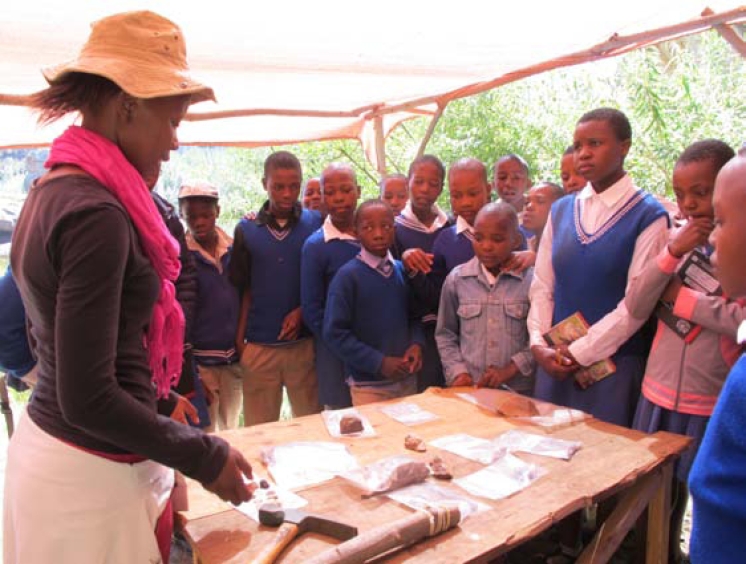Metolong Authority and the Lesotho Heritage Network host discussion on how to build dams in Lesotho and save cultural heritage.
The Metolong Dam represents a major advance for Lesotho, not only because it will provide clean, treated water to so many people and businesses in the west of the country, but also because it has afforded a rare opportunity to explore Lesotho’s heritage and contribute to its heritage sector. In collaboration with the Metolong Authority and the World Bank, the Department of Culture sponsored the Metolong Cultural Resource Management (MCRM) Project, a four-year project with two main aims: 1) to record and salvage cultural heritage ahead of the Metolong Dam; and 2) to train Basotho heritage managers and thus build capacity for Lesotho’s heritage sector. Since 2008, the MCRM Project has completed excavations of Middle and Later Stone Age and historical archaeological sites, rock art recording and removal, archival and intangible cultural heritage assessments, and has provided training in a range of heritage field skills to ten Basotho who have recently founded the Lesotho Heritage Network (lesothoheritage.wordpress.com). The MCRM Project also featured a substantial community participation programme, including pitsos, school visits, and newsletters distributed throughout the dam’s catchment. This combination of research, conservation, and capacity building is unique to Metolong, but is especially relevant now that impact assessments for the next Lesotho Highlands Water Project dam at Polihali have begun, and the future of Polihali’s heritage and heritage managers is an open question.
To mark the conclusion of the MCRM Project, the Metolong Authority and the Lesotho Heritage Network are hosting a special lecture by Professor Peter Mitchell of the University of Oxford (United Kingdom). Professor Mitchell is one of the world’s leading experts in African archaeology, especially on the archaeology of Bushman hunter-gatherers in Lesotho, where he has worked for more than two decades. In addition to his work in the Metolong area, Professor Mitchell’s projects have included excavations at Sehonghong and Likoaeng in Thaba-Tseka District, Tloutle ha Mpiti in the Roma Valley, and sites associated with Phase I of the Lesotho Highlands Water Project. Professor Mitchell will be discussing the outcomes of the MCRM Project, their relevance to archaeology elsewhere in Lesotho, and potential future directions for research and heritage management in Lesotho. The lecture will take place on 10 July 2014 at 7:00 PM in the Naleli Room at the Maseru Sun. Attendance is free to the public but due to limited capacity early arrival is recommended. Details are also available on the Lesotho Heritage Network website, lesothoheritage.wordpress.com.





